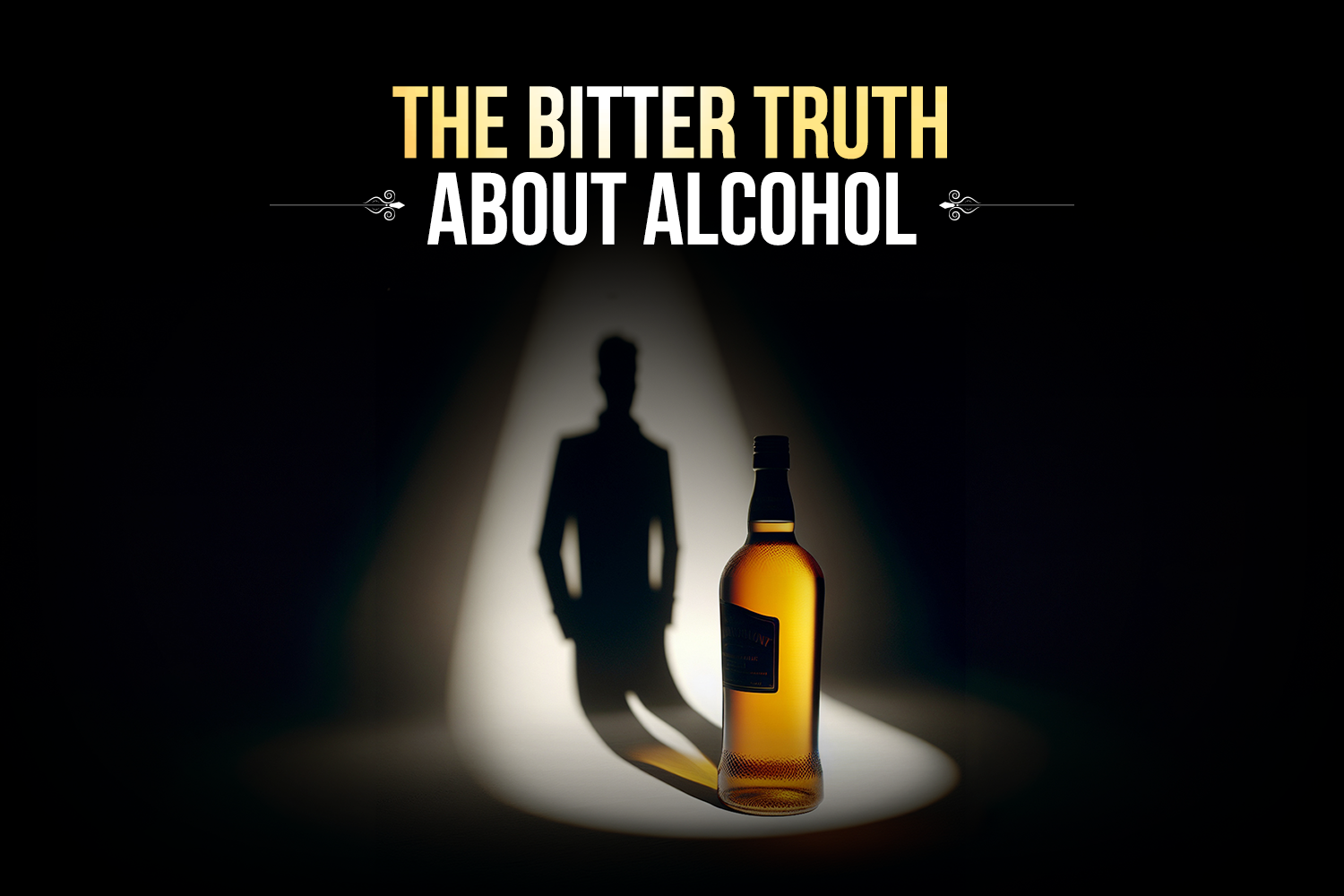Alcohol is often portrayed in advertisements as a symbol of fun, success, and social acceptance. However, the reality behind alcohol consumption is much more complex and can be detrimental to health and well-being. In this blog, we delve into the bitter truths about alcohol that advertisements conveniently overlook, equipping you with the knowledge to make informed choices.
1. The Illusion of Glamour and Success
- Portrayal in Media: Alcohol advertisements often depict glamorous lifestyles, linking alcohol with success and happiness.
- The Downside: The reality is that alcohol can lead to addiction, financial problems, and strained relationships, contrasting sharply with the advertised image.
2. Health Risks Associated with Alcohol Consumption
Understanding the health risks is crucial for making informed choices:
- Immediate Effects: Even moderate consumption can lead to impaired judgment, motor skills, and reaction times, increasing the risk of accidents.
- Long-Term Consequences: Chronic alcohol consumption is linked to numerous health issues, including liver disease, heart problems, and various cancers.
- Mental Health Impact: Alcohol can exacerbate anxiety and depression, contrary to its portrayal as a stress reliever.
3. The Deceptive Nature of Alcohol Advertising
Alcohol marketing often misleads consumers in several ways:
- Minimizing Risks: Advertisements typically downplay the risks of alcohol, focusing instead on the positive social aspects.
- Targeting Vulnerable Audiences: Many ads are designed to appeal to younger audiences and those susceptible to peer pressure, promoting a culture of drinking without highlighting potential harms.
4. Social Consequences of Alcohol Consumption
The social impact of alcohol is often glossed over in advertisements:
- Social Isolation: Despite being marketed as a means to socialize, excessive drinking can lead to loneliness and disconnection from relationships.
- Violence and Aggression: Alcohol is frequently linked to aggressive behavior and violence, particularly in social settings, which is rarely depicted in advertising.
5. Understanding Alcohol Addiction
Alcohol addiction is a serious concern that advertisements often ignore:
- Signs of Addiction: Recognizing the signs of alcohol dependency, including cravings and withdrawal symptoms, is essential for prevention.
- Impact on Families: Addiction doesn’t just affect the individual; it can have devastating effects on family dynamics and relationships.
6. Making Informed Choices About Alcohol
Empowering yourself with knowledge allows for responsible drinking:
- Know Your Limits: Understanding your tolerance and setting boundaries can help mitigate risks.
- Choose Quality Over Quantity: Opt for high-quality alcoholic beverages and drink in moderation to minimize health risks.
- Seek Support: If you or someone you know struggles with alcohol, seeking professional help is crucial.
Conclusion
The portrayal of alcohol in advertisements often obscures its darker realities. By recognizing the myths perpetuated by marketing, understanding the health risks, and acknowledging the social consequences, individuals can make informed decisions about their alcohol consumption. The truth about alcohol may be bitter, but awareness can lead to healthier choices.



























Leave a Reply